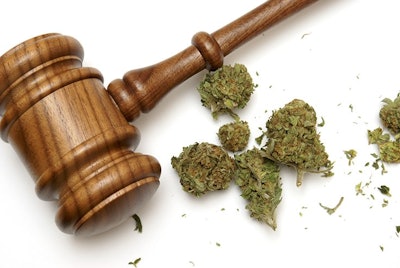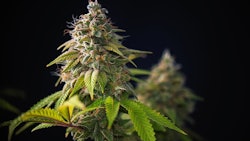
As the dust settles after Ohio’s passage of a bill legalizing hemp and CBD, the new law is complicating the prosecution of cannabis-related criminal cases across the state, primarily because law enforcement cannot distinguish between marijuana—which remains illegal—and hemp—which is now legal under state law.
On July 30, Gov. Mike DeWine signed Senate Bill 57, which decriminalized hemp and legalized licensed hemp cultivation in Ohio. The bill defines “hemp” as cannabis containing less than 0.3-percent THC, which aligns with the 2018 Farm Bill that federally legalized the cultivation and sale of industrial hemp last year. The legislation requires the Ohio Department of Agriculture, governor and attorney general to create a regulated and licensed hemp industry in the state, with draft regulations expected in six months. The law took effect immediately after receiving DeWine’s signature.
Now, when prosecuting cannabis-related cases, law enforcement must determine whether the cannabis in question is hemp (containing 0.3-percent THC or less) or marijuana (containing more than 0.3-percent THC). It’s a task that has so far proven difficult, if not impossible.
Most, if not all, of Ohio’s crime labs can only detect the presence of THC, but not the concentration, according to a 10TV report. Ohio’s Bureau of Criminal Investigation (BCI) state crime lab told 10TV that while it is in the early stages of validating methods to measure THC levels in cannabis, it may be “several months” before these methods are up and running. In the meantime, BCI is recommending that prosecutors do not indict any individuals on cannabis-related crimes, 10TV reported.
The move effectively decriminalizes cannabis statewide, leading 10TV to ask in a news story that went viral on social media channels: “Did Ohio lawmakers accidentally legalize marijuana?”
Ohio Attorney General Dave Yost announced Aug. 13 that his office is working to remedy the situation. Yost said that by the end of the year, the BCI will have three testing machines, paid for with money allocated in the state’s new two-year budget, that will allow law enforcement to measure the THC levels in cannabis, according to a Cleveland.com report. Until then, Yost’s office has allocated additional funds to reimburse local authorities for the cost of conducting testing at private labs, Cleveland.com reported.
“When laws change, you have to rethink your systems.”
-Chris Lindsey, Senior Legislative Counsel, The Marijuana Policy Project
This issue is not unique to Ohio; new laws have complicated cannabis-related criminal cases in other states that have passed legislation legalizing hemp, as well. In Texas, for example, prosecutors across the state dropped hundreds of low-level marijuana charges earlier this summer until further testing can be completed. Elsewhere, Nebraska officials are also pondering how to prove whether cannabis contains more or less than the allowable 0.3-percent THC concentration, and prosecutors have decided not to move ahead with marijuana possession charges in a case involving four University of Nebraska football players.
These are all just growing pains that states will be able to overcome in time, according to Chris Lindsey, senior legislative counsel for the Marijuana Policy Project.
“They’re just used to a zero tolerance or no tolerance scenario, and now they have to address the fact that they simply can’t say it’s red or it’s green—they actually have to quantify the amount,” Lindsey told Cannabis Business Times. “When laws change, you have to rethink your systems.”
In the meantime, the issue continues to present a challenge to Ohio prosecutors.
Earlier this month, Columbus dropped pending misdemeanor cannabis charges after City Attorney Zach Klein said that law enforcement has no way to test cannabis to determine its THC levels.
“The reality is, we have no practical way of testing,” Klein told 10TV. “The Ohio legislature and governor signed a law into effect that has created … a technological barrier that now prohibits us from prosecuting these cases.”
According to Rachel Gillette, chair of Greenspoon Marder’s Cannabis Law Practice, dismissing the cases is the right move until Ohio and other states can determine the THC levels of cannabis in question.
“If a party says, ‘Look, this is CBD oil derived from industrial hemp,’ and they can’t determine whether it in fact is or isn’t, I think they can’t prove their case and maybe have to settle it out or maybe have to drop it altogether,” Gillette told Cannabis Business Times. “I think, for justice’s sake, … the attorney general … saying, ‘Hey, we have to suspend cannabis indictments’ is probably the right move.”
Zooming out, the issue could signify another argument for the end of prohibition, Gillette added.
“This may be yet another crack in the glass for full federal legalization,” she said. “It illustrates [that] public … perception of cannabis has moved so greatly, but yet the federal government just continues to bury its head in the sand when it comes to federal legalization of cannabis."
























